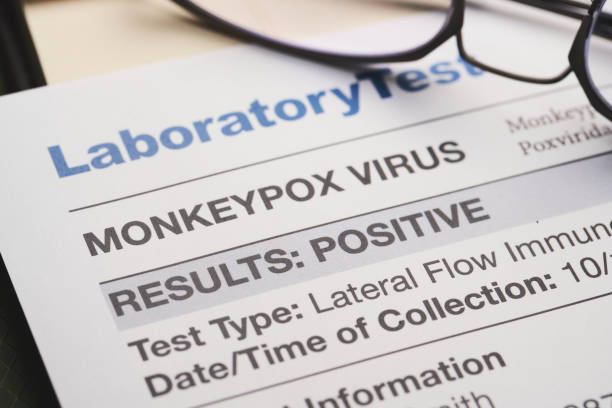‘Not a time for stigmatization’: Concerns about health messaging during monkeypox outbreak

Posted Jun 8, 2022 5:39 pm.
After Alberta recorded its second case of monkeypox as part of a growing global outbreak, the way health officials have presented the information is being criticized.
In particular, a tweet from Alberta’s Chief Medical Officer of Health Dr. Deena Hinshaw generated a lot of negative reaction, as she noted that the majority of cases so far appear to be in men who have sex with men.
Monkeypox is predominantly transmitted through close physical skin-to-skin contact, which is why it can be spread to sexual partners. While monkeypox is not a STI, the majority of global cases to date have been among men who have reported intimate relations w/other men. (5/8)
— Alberta Chief Medical Officer of Health (@CMOH_Alberta) June 7, 2022
While Hinshaw did note that monkeypox is not a sexually transmitted infection and can ultimately infect anyone who is in close contact with another infected individual, people were wondering why it was worth it to make that specific point in the first place.
It raises fears that the monkeypox outbreak could end up stigmatizing the 2SLGBTQ+ community.
“I think we want to avoid the misinformation and backlash and the stigma and prejudice that comes with that,” said Dr. Kristopher Wells, Canada Research Chair for the Public Understanding of Sexual and Gender Minority Youth at MacEwan University.
“Yes we see early outbreaks within the gay male and bisexual community, but monkeypox is not based in a person’s sexual orientation, or their identity their gender, or their race.”
Wells agrees with the central statistic that many cases are in men who have sex with men, but the way to spread the message and raise awareness should be more closely coordinated with people in that community.
He said otherwise, it could end up having negative effects and become reminiscent of the early public response to the HIV/AIDS epidemic decades ago.
“If everybody just thinks this is a gay issue, then they’re not going to protect themselves and they’re more likely then to become infected,” said Wells.
Transmission of monkeypox is not based on a person's sexual orientation, identity, gender, or race. Rather close personal, prolonged (usually intimate) contact.
Education and targeted community outreach are essential health promotion strategies to follow. https://t.co/9AzQC7YRay
— Dr. Kristopher Wells (@KristopherWells) June 8, 2022
It can be a delicate balance for health officials, as experts say there is no intention to try and target a specific community but rather make sure those who are being disproportionately affected are properly aware.
“It’s not to stigmatize a given population, it’s to alert a given population that they may be at higher risk,” said University of Calgary infectious disease expert Dr. Dan Gregson. “Similar to older patients currently in the COVID epidemic, they’re at higher risk of complications. We don’t stigmatize elderly people because they’re at higher risk of adverse events from COVID.”
Gregson said at this point in the spread of a virus like monkeypox, they have to ensure the people who do seem to be more at risk are aware of the precautions they need to take so that transmission can be halted as soon as possible.
Read More:
-
Queer artists General Idea AIDS project on display at the National Gallery of Canada
-
Gay and bisexual men still face restrictions when donating sperm, contributing to shortage
-
Monkeypox outbreaks prompt concern over possible stigma
In addition, the message also needs to go out that it can be spread in many other circumstances as we have seen in numerous other countries.
“Certainly in Africa, household transmission occurs. My assumption will be that it will spread in other populations as well. It’s just an initial observation, we’ll either get things under control or it will spread in the general population.”
But Wells added that the public perception can become skewed, especially through social media which can distort the perspective slightly. It becomes even more important right now as it is Pride Month and should be a time to build stronger connections.
Read More:
-
Canadian travellers urged to take precautions against monkeypox abroad
-
Second case of monkeypox discovered in Alberta
-
Alberta monkeypox onset is not something to fret about say research experts
“It’s important to work with organizations that are within various communities to spread the message through social networks, not everyone pays attention to the news or is on social media. We want to get the right information out to people,” he said.
“People want to be very careful in the kinds of messaging that is being put out there. We don’t want history to repeat itself in unfortunate ways,” said Wells.
In reference to the COVID-19 pandemic, Wells did point out there was stigmatization against Asian people when the virus first started spreading around and we are already at risk of a similar situation affecting populations of gay and bisexual men as monkeypox cases increase.
Read More:
But another lesson we have learned from the pandemic could be used here instead, as we learn to watch out for each other’s health and safety to hopefully clamp down on infections.
“I would encourage people to treat people fairly and be compassionate and simply take precautions,” said Gregson.
“It’s a time for conversation, it’s a time for education. It’s not a time for stigmatization or shame or blame,” Wells added.








